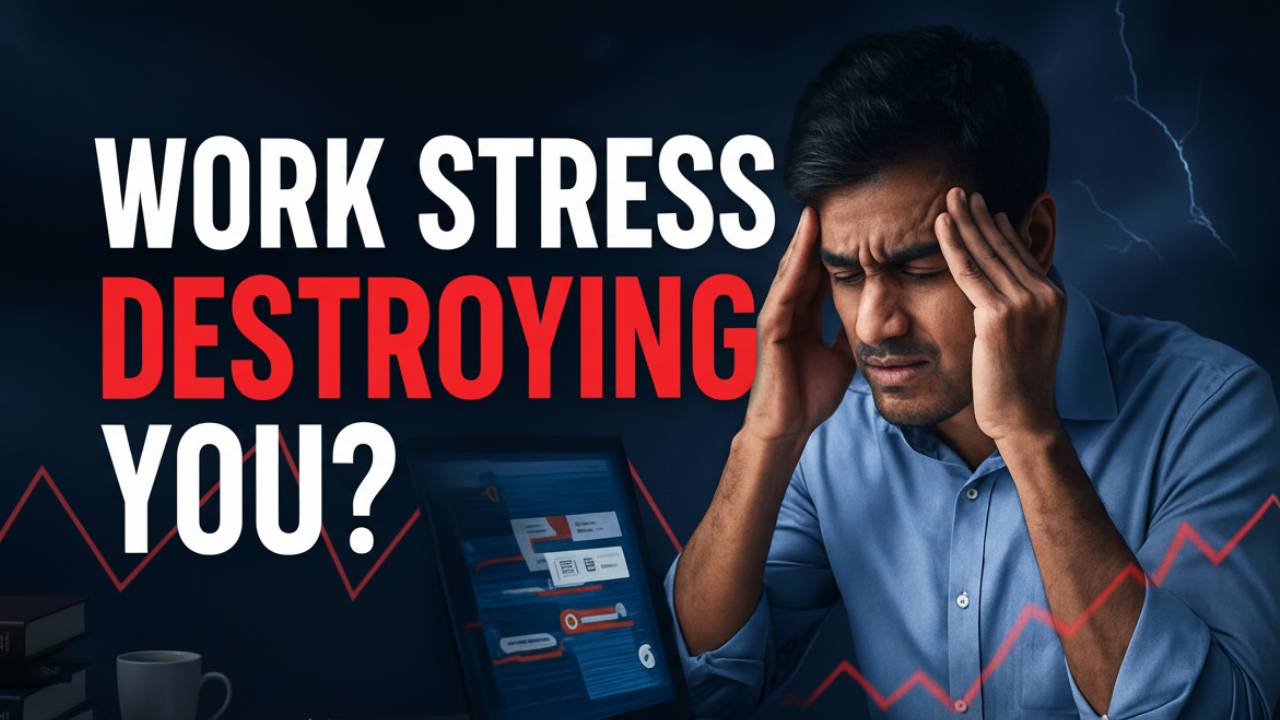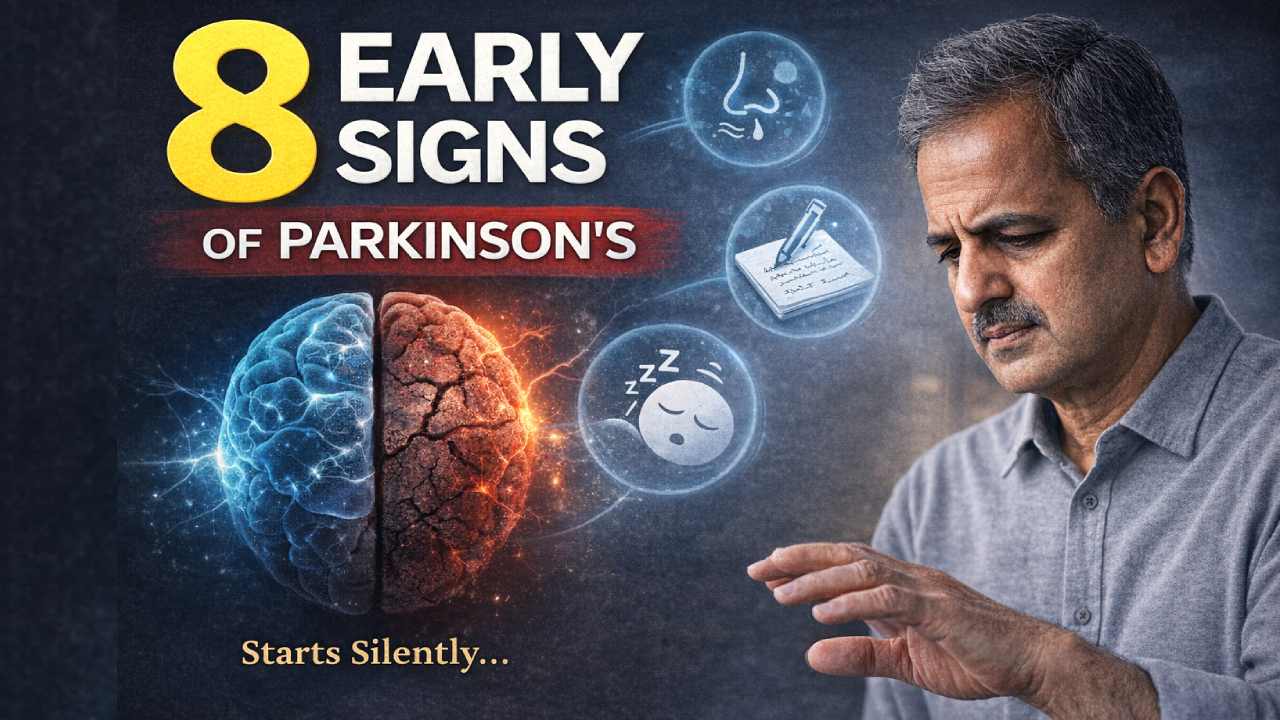Winning the Workplace Battle: How to Handle Stress and Pressure at Work Without Losing Yourself
Verified By Dr. Ajay Dogra | 19-Nov-2025
Dr. Ajay Dogra, Consultant Psychiatrist at Kailash Hospital, Noida, leans back in his chair, having just listened to a high-performing IT professional describe feelings of constant overwhelm. "In a corporate hub like Noida, the question is no longer if you experience stress, but how well you manage it. The relentless pursuit of deadlines, targets, and professional validation has made chronic stress a silent epidemic. Learning how to handle stress and pressure at work is not a soft skill; it is a critical survival tool for your mental and physical health," he states.
Workplace stress is a universal experience, but in the fast-paced, competitive environment of Noida's corporate landscape, it can quickly escalate from a motivator to a debilitating force. Ignoring it can lead to burnout, anxiety, and a host of physical illnesses. This guide, drawing on the expert insights of Dr. Ajay Dogra and the mental health professionals at Kailash Hospital, Noida, provides a practical and profound roadmap to not just survive, but thrive under pressure.
Topic of Content
Stress is simply your body's way of reacting to a challenge or demand. In acute bursts, it can enhance performance—this is the 'fight or flight' response sharpening your focus. The problem begins when this state becomes chronic.
"We are biologically wired to handle a sprint, not a marathon," explains Dr. Dogra. "When work pressure is constant, the cortisol and adrenaline that once helped you now start to damage your system. You move from being in a state of 'challenge' to a state of 'threat,' leading to exhaustion, cynicism, and reduced efficacy. This is the anatomy of burnout."
Also read: Understanding Bipolar Disorder: Types, Triggers, and Treatment
The consequences of chronic work stress extend far beyond the office, creating a ripple effect that touches every part of your life.
Physical Health:
- Weakened immune system, leading to frequent infections.
- Persistent headaches, muscle tension, and fatigue.
- Digestive issues and elevated blood pressure.
- Increased risk of cardiovascular diseases.
Mental and Emotional Health:
- Anxiety, irritability, and a sense of being constantly on edge.
- Depression, hopelessness, and loss of motivation.
- Difficulty concentrating, memory lapses, and indecisiveness.
- Emotional exhaustion and detachment.
Behavioural Changes:
- Social withdrawal from family and friends.
- Relying on unhealthy coping mechanisms like excessive alcohol, smoking, or junk food.
- Decreased performance and productivity at work.
- Sleep disturbances, either insomnia or sleeping too much.
Managing stress is not about eliminating it completely, but about building resilience and deploying effective coping mechanisms. Here is a multi-pronged approach to how you manage stress at work.
1. Master Your Mindset: The Cognitive Shift
Your perception of pressure determines its power over you.
- Reframe Challenges: Instead of thinking, "This is impossible," try, "This is a chance to test my skills." View pressure as a part of professional growth, not a personal attack.
- Set Realistic Expectations: Perfectionism is a major stressor. Aim for excellence, not perfection, and understand that it's okay to make mistakes and learn from them.
- Practice Mindfulness: Spend a few minutes each day in meditation or focused breathing. This trains your brain to stay in the present moment, reducing anxiety about future deadlines or past mistakes.
2. Optimize Your Environment: The Practical Approach
- Time Management is Stress Management: Use tools like the Eisenhower Matrix to prioritize tasks into Urgent/Important categories. Tackle the most challenging task first thing in the morning (eat the frog).
- Set Digital Boundaries: The constant ping of emails and messages fractures attention and increases anxiety. Schedule specific times to check emails and silence non-essential notifications during deep work sessions.
- Learn to Say 'No': Taking on more than you can handle is a direct route to burnout. Politely but firmly decline additional responsibilities when your plate is already full.
- Declutter Your Space: A cluttered desk can lead to a cluttered mind. A clean, organized workspace can significantly reduce cognitive load and create a sense of calm.
3. Fuel Your Body: The Biological Foundation
Your body and mind are inextricably linked.
- Move Your Body: Regular physical activity is a powerful antidote to stress. It metabolizes excess stress hormones and releases endorphins. A brisk 30-minute walk during your lunch break can work wonders.
- Prioritize Sleep: Sleep is non-negotiable for cognitive function and emotional regulation. Aim for 7-8 hours of quality sleep by creating a relaxing bedtime routine and keeping screens out of the bedroom.
- Nourish, Don't Punish: Avoid the temptation of sugary snacks and caffeine for a quick energy boost. They lead to energy crashes that worsen stress. Opt for a balanced diet rich in whole grains, lean proteins, fruits, and vegetables.
4. Build Your Support System: The Relational Pillar
- Cultivate Work Friendships: Having even one trusted colleague to confide in can make the workplace feel less isolating and provide a valuable outlet for sharing frustrations.
- Communicate with Your Manager: If the workload is consistently unmanageable, have a calm, data-driven conversation with your manager. Propose potential solutions, such as reprioritizing projects or extending deadlines.
- Disconnect to Reconnect: Make a conscious effort to be fully present with family and friends after work. Engage in hobbies and activities that have nothing to do with your job.
Also read: Unraveling the Mysteries of Schizophrenia in Adolescents
While self-help strategies are powerful, there are times when professional intervention is crucial. Dr. Ajay Dogra advises seeking help from a top Psychiatrist in Noida if you experience:
- Persistent feelings of sadness, anxiety, or emptiness that don't go away.
- Inability to function at work or home due to mental fatigue.
- Using alcohol or drugs as a primary coping mechanism.
- Significant changes in sleep or appetite.
- Thoughts of harming yourself or feeling that life is not worth living.
"There is immense strength in acknowledging that you need help," emphasizes Dr. Dogra. "Seeing a psychiatrist is no different from seeing a cardiologist for a heart condition. It is a proactive step to heal a vital organ—your brain. At Kailash Hospital, Noida, we provide a confidential and compassionate environment where we can equip you with evidence-based strategies, including therapy and, if needed, medication, to regain control."
As a premier best hospital in Noida, Kailash Hospital is committed to holistic health, which includes robust mental healthcare services.
- Expert Diagnosis: The psychiatry department, led by specialists like Dr. Ajay Dogra, can accurately diagnose conditions like Generalized Anxiety Disorder, Major Depression, and Burnout Syndrome, which often manifest as work stress.
- Integrated Therapies: They offer a range of treatments, including Cognitive Behavioral Therapy (CBT) to change negative thought patterns, mindfulness training, and stress management workshops.
- Confidential and Supportive Care: The team understands the stigma surrounding mental health and provides a non-judgmental space for healing and recovery.
Navigating workplace stress is an ongoing journey, not a one-time fix. It requires consistent effort and self-compassion. The goal is not to create a stress-free life, but to build a life where stress does not control you.
As Dr. Ajay Dogra of Kailash Hospital, Noida concludes, "Your career is a marathon, not a sprint. Pacing yourself, knowing when to hydrate, and listening to your body's signals are the keys to finishing strong. Your mental well-being is the foundation upon which a successful and fulfilling career is built. Invest in it with the same seriousness you invest in your professional skills. The most productive thing you can do for your career today might just be to take a break, breathe deeply, and prioritize your peace."
Your mental health is your most valuable professional asset. If stress is impacting your life, take the first step towards balance by consulting a mental health professional at Kailash Hospital, Noida.



 +91-9711918451
+91-9711918451
 international.marketing@kailashhealthcare.com
international.marketing@kailashhealthcare.com







